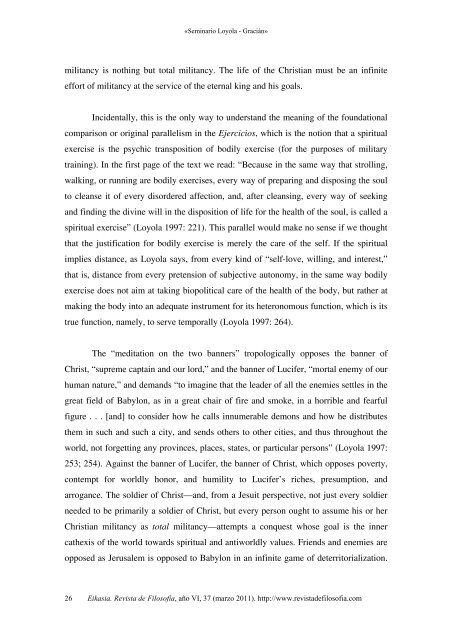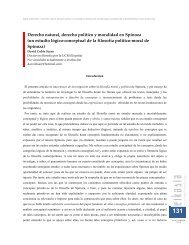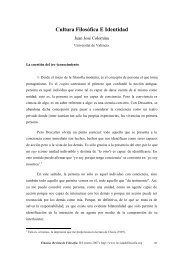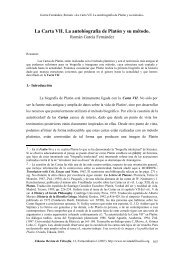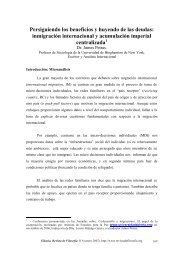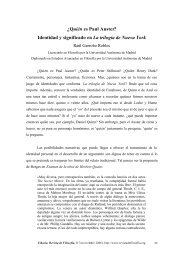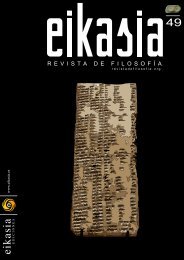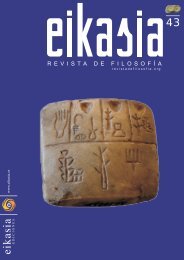Descargar número completo (3,83 MB) - Eikasia
Descargar número completo (3,83 MB) - Eikasia
Descargar número completo (3,83 MB) - Eikasia
You also want an ePaper? Increase the reach of your titles
YUMPU automatically turns print PDFs into web optimized ePapers that Google loves.
«Seminario Loyola - Gracián»<br />
militancy is nothing but total militancy. The life of the Christian must be an infinite<br />
effort of militancy at the service of the eternal king and his goals.<br />
Incidentally, this is the only way to understand the meaning of the foundational<br />
comparison or original parallelism in the Ejercicios, which is the notion that a spiritual<br />
exercise is the psychic transposition of bodily exercise (for the purposes of military<br />
training). In the first page of the text we read: “Because in the same way that strolling,<br />
walking, or running are bodily exercises, every way of preparing and disposing the soul<br />
to cleanse it of every disordered affection, and, after cleansing, every way of seeking<br />
and finding the divine will in the disposition of life for the health of the soul, is called a<br />
spiritual exercise” (Loyola 1997: 221). This parallel would make no sense if we thought<br />
that the justification for bodily exercise is merely the care of the self. If the spiritual<br />
implies distance, as Loyola says, from every kind of “self-love, willing, and interest,”<br />
that is, distance from every pretension of subjective autonomy, in the same way bodily<br />
exercise does not aim at taking biopolitical care of the health of the body, but rather at<br />
making the body into an adequate instrument for its heteronomous function, which is its<br />
true function, namely, to serve temporally (Loyola 1997: 264).<br />
The “meditation on the two banners” tropologically opposes the banner of<br />
Christ, “supreme captain and our lord,” and the banner of Lucifer, “mortal enemy of our<br />
human nature,” and demands “to imagine that the leader of all the enemies settles in the<br />
great field of Babylon, as in a great chair of fire and smoke, in a horrible and fearful<br />
figure . . . [and] to consider how he calls innumerable demons and how he distributes<br />
them in such and such a city, and sends others to other cities, and thus throughout the<br />
world, not forgetting any provinces, places, states, or particular persons” (Loyola 1997:<br />
253; 254). Against the banner of Lucifer, the banner of Christ, which opposes poverty,<br />
contempt for worldly honor, and humility to Lucifer’s riches, presumption, and<br />
arrogance. The soldier of Christ—and, from a Jesuit perspective, not just every soldier<br />
needed to be primarily a soldier of Christ, but every person ought to assume his or her<br />
Christian militancy as total militancy—attempts a conquest whose goal is the inner<br />
cathexis of the world towards spiritual and antiworldly values. Friends and enemies are<br />
opposed as Jerusalem is opposed to Babylon in an infinite game of deterritorialization.<br />
26 <strong>Eikasia</strong>. Revista de Filosofía, año VI, 37 (marzo 2011). http://www.revistadefilosofia.com


